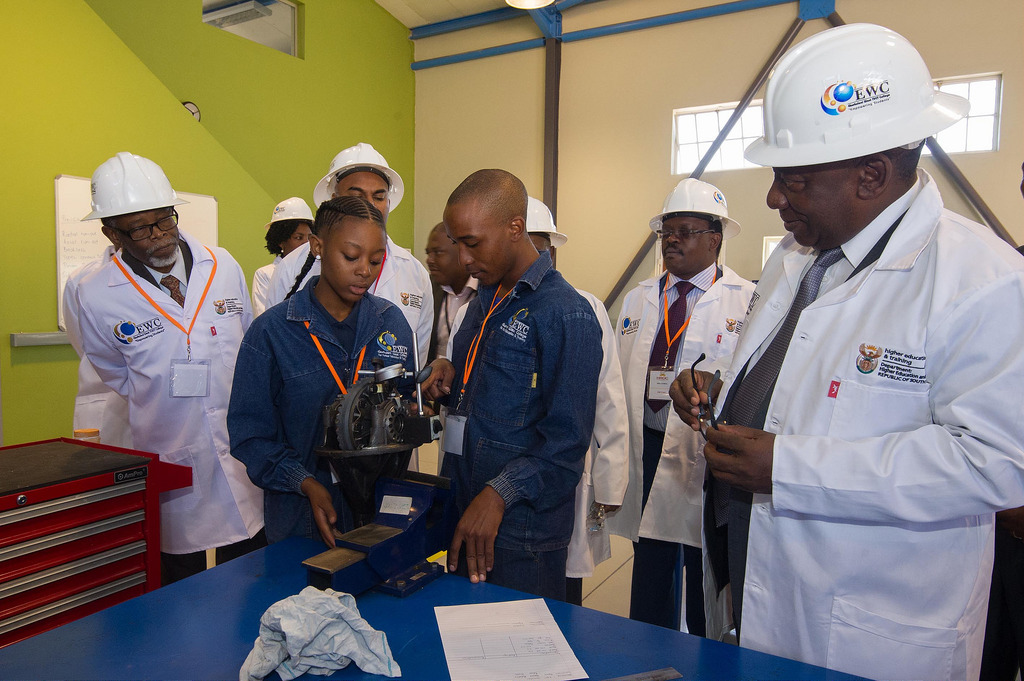Professor Mamokgethi Phakeng, the vice chancellor of the University of Cape Town (UCT) on Tuesday clarified her position on the death of the health dean and cardiology researcher Professor Bongani Mayosi, releasing a statement in which she says that she does not blame the Fees Must Fall Movement, but encouraged the institution to reflect on his tragic passing.
UPDATE: A spokesperson for the University of Cape Town said: “[The university] takes student mental health concerns very seriously and as such frequently promotes and communicates about the work of the Student Wellness Service (SWS) which offers counselling services, among other health and wellness services. Throughout the academic year the university’s social media and digital platforms continually create awareness of all these services that cater for those in distress and urges students to make use of these services when needed.”
Following the comments made by the vice chancellor, students interviewed by The Daily Vox said that the university had dont little to pragmatically deal with the mental health issues of black students, staff and workers.
The university said: “UCT is of the view that more can always be done to support students experiencing mental health challenges. The university regularly assesses the services offered and the support provided with a view to making the necessary improvement where resources permit. For instance, last year the university, via the Development and Alumni Department, secured additional funding of R650,000 from an anonymous donor. The funding was channelled towards SWS.”
—
“There have been some media reports and social media posts that give the impression that I blame the death of Professor Bongani Mayosi on the protests in the higher education sector over the past three years. This is not true. I am writing to you now because it is so important that we understand the opportunity we have to reflect on the loss we have experienced and how we can become stronger, both as individuals and as a community,” Phakeng said in the statement.
“What I said was that the protests of 2016 and 2017 were not kind to any of us at the University of Cape Town (UCT), and they were not kind to Professor Mayosi as dean of the faculty of health sciences. His office was occupied for about two weeks in 2016. He had to manage pressure coming from many different directions, including from staff and students. And some black students were angry with him. They called him names, like coconut or sell-out, when his intentions were really for the students’ best welfare,” she said.
Mayosi passed away on 27 July – his family shortly afterwards announced that he had died of suicide. “Bongani died on the morning of 27 July 2018. In the last two years he has battled with depression and on that day took the desperate decision to end his life,” a family spokesperson said.
That article was followed by another in the Cape Argus over the weekend, which quoted Phakeng’s comments made at a press conference about Mayosi’s struggles during the period of the student protests. The article’s headline asked: “Did student protests contribute to UCT professor’s suicide?”
Professor Phakeng: “That day he was called a sellout. He just couldn’t deal with.â€
In an interview with Radio 702, Phakeng said that the university was aware that Mayosi was struggling as dean of the health faculty, and had even turned down a resignation request on his part, as it would not “reflect well” on the institution.
In her latest statement, Phakeng said that Fees Must Fall had been hard on students and staff members at UCT, with many people exhibiting signs of post traumatic stress disorder.
She said: “I believe in the importance of activism and protest. Conflict is inevitable in any community where everything is subject to debate and academic rigour, but it does not have to be destructive. Our right to free speech is not meant to destroy us as a community or a country. It’s supposed to build us, so we move into the future stronger than before.”
“The protests were not wrong in their intentions and goals. Differences of opinion are not wrong. But things were said and actions were taken that caused serious harm to people. Our struggle should not be about harming human beings but about dismantling systems of oppression. That is what protest today needs to be about – building UCT into a better institution, where students become leaders.”
Featured image by Mohammed Jameel Abdulla









